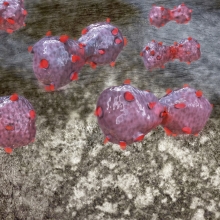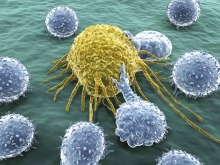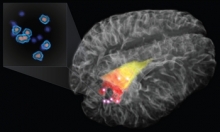A receptor for the dopamine neurotransmitter promotes growth and spread of pancreatic cancer -- and schizophrenia drugs, which block the function of this receptor, slowed tumor growth and metastatic spread in mice, according to researchers at McGill University and the German Cancer Research Center.

Study reveals the impact of night work
You cross paths with him at the break of dawn in the corridors of the Metro. He looks bleary-eyed and pallid. This worker’s night shift just ended. His body clocks are out of sync with one another, and, imperceptibly, they’re also out of sync with his environment. In the long run, this night owl could be at greater risk of developing cardiovascular, autoimmune diseases or certain types of cancer.
Newly named Gerald Bronfman Department of Oncology recognizes family’s enduring support
In recognition of the Bronfman family’s enduring support for oncology programs and research at McGill University, the Faculty of Medicine’s Department of Oncology has been named the Gerald Bronfman Department of Oncology, in honour of one of the family’s major benefactors.

Pioneering research at McGill’s Goodman Cancer Research Centre gets boost
The 4th Goodman Cancer Research Gala has raised more than $2.1 million to fund foundational research, more effective diagnostic tools and the development of new treatments and therapies for cancer patients. The Gala was held on Sunday, June 5 in Montreal, bringing together more than 800 guests in support of McGill University’s Rosalind and Morris Goodman Cancer Research Centre.

By Tod Hoffman, Lady Davis Institute for Medical Research
The use of incretin-based drugs is not associated with an increased risk of pancreatic cancer in patients with type 2 diabetes, according to a study published in the latest issue of the British Medical Journal (BMJ).
The research was conducted by the Canadian Network for Observational Drug Effect Studies (CNODES), which used the health records of almost 1 million patients with types 2 diabetes.

Preventing cancer cells from growing by understanding what they 'eat'.


It is estimated that half of all cancer patients suffer from a muscle wasting syndrome called cachexia. Cancer cachexia impairs quality of life and response to therapy, which increases morbidity and mortality of cancer patients. Currently, there is no approved treatment for muscle wasting but a new study from the Research Institute of the McGill University Health Centre (RI-MUHC) and University of Alberta could be a game changer for patients, improving both quality of life and longevity. The research team discovered a new gene involved in muscle wasting that could be a good target for drug development.


Montreal Neurological Institute scientists discover a new mechanism driving spread of cancer
A protein commonly found in human cells could be an important switch that activates cancer cell metastasis, according to a new study by researchers at the Montreal Neurological Institute and Hospital - The Neuro at McGill University and the MUHC. The finding focuses attention on a biological mechanism that until now was largely overlooked. The discovery of the protein’s effect significantly expands our understanding of epithelial cancers such as breast and lung cancer.

Improves tumour surgeries and extends survival times for brain cancer patients
VIDEO: http://bit.ly/1EYjsTV

A new study of over 3,400 Canadian women provides further evidence that exposure to air-pollution may increase the risk of developing breast cancer, especially among women who have not yet had their menopause.

